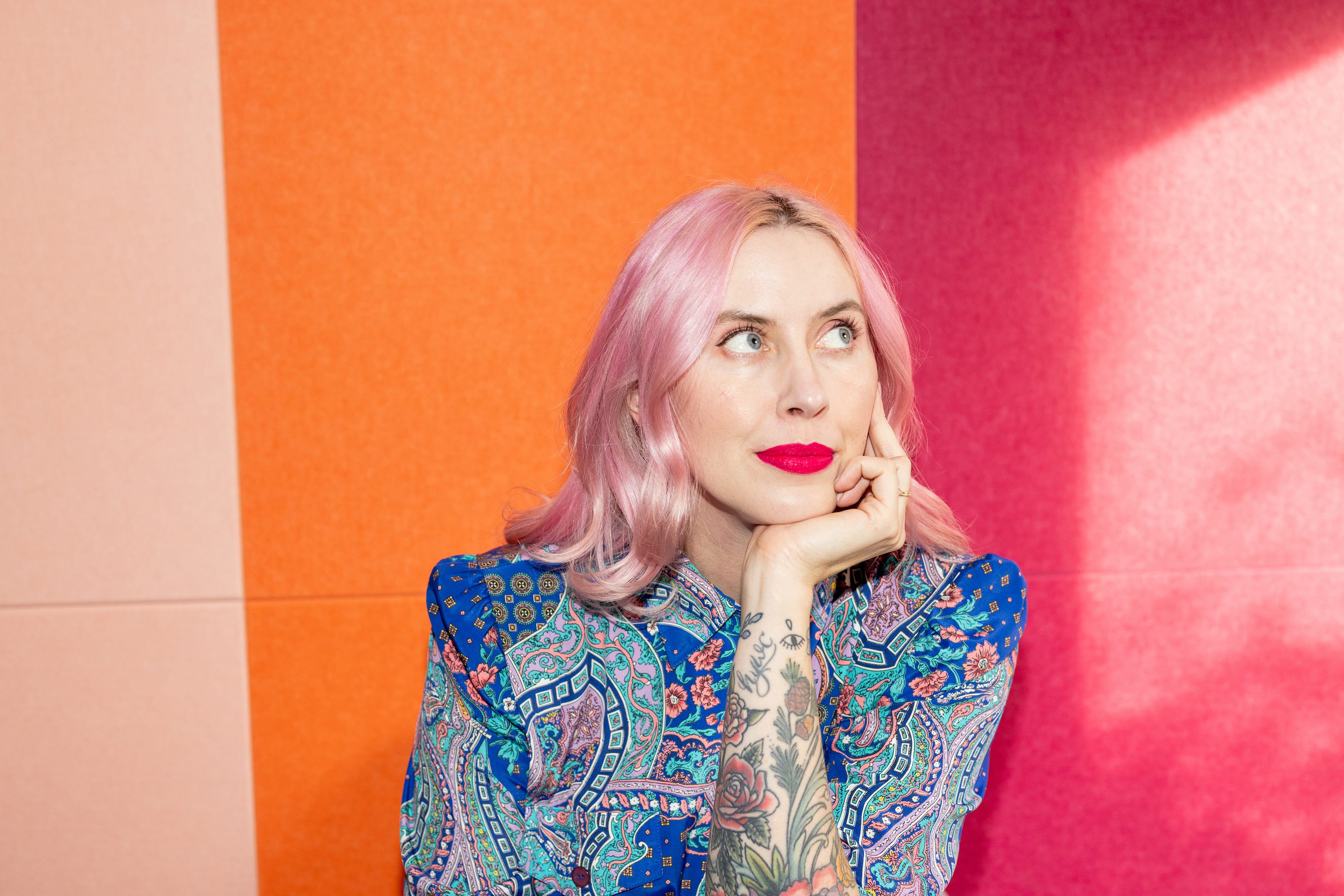"Am I truly paying attention to my life?": A Conversation with Nora McInernyIt's time for a new interview! Today we talk with NORA MCINERNY, author of "No Happy Endings" and host of the daily podcast "It's Going to Be OK."Our interview series features interesting people with something to say that the world needs hearing. Let me know what you think—we’ll continue to experiment and evolve along the way. 🙏 Introducing Nora McInernyNora is a podcaster, author, and speaker who (among other things) writes the popular newsletter She Tried. Her TED talk on moving forward from grief—not "moving on”—has been viewed millions of times. I was also impressed with her new daily podcast! Here are a few highlights from Nora’s bio:
Naturally, we’re more interested in the person behind the impressive bio. And since this is 🌻 A Year of Mental Health, I’m interested in how people think about wellbeing in general. So let’s have some questions and answers with Nora! (There’s also a short audio recording from her—scroll down for that.)Qs & As with Nora
For a long time, I equated “mental health” with a homeostasis of happiness, and “wellbeing” with “being just fine thank you!” It was a very high bar that I could never clear, because life for me is not a graph going straight up and to the right. For most people it’s not. Most people have life in their life: sickness, heartbreak, envy, insecurity and other unwelcome guests dropping in at all the wrong moments. I never felt like I was truly well because I conflated health and wellness with the absence or avoidance of discomfort or pain or suffering, instead of the ability to weather and integrate it. Today, I consider awareness to be the most important part of my mental health and wellbeing: am I truly paying attention to my life? Am I truly cognizant of what I’m feeling and when? Am I present for it, even if it’s not pleasant to be present with? I’m learning that I can be ok without everything being ok, and that noticing the ok in my days actually does make a difference.
Someday we’ll be dead and it will all have gone too soon and we’ll wish we’d spent less time keeping score, focusing on the ways we and others fell short of our expectations, or trying to keep up with one another. I say this to myself, because nobody needs reminding of that more than me. When my husband Aaron was dying he told me—on his literal, actual death bed—that it was going to be okay. And I thought, you’re wrong! You’re going to die! That will never be okay! And it isn’t okay that he did at age 35 and our son never got to know him. But Aaron never said everything would be okay. He said it. And he never clarified what it is. If he could maintain that kind of outlook while staring death in the face, I can find one okay thing every day.
The Real Housewives franchises are actually a rich text about dealing with grief. I could (and might) write an entire thesis about The Housewives and the Five Stages of Grief. Any time someone tries to make me feel bad about watching Bravo, I feel bad for them because they are missing out on an anthropological experience! Nora’s Audio Recording 🎙️I usually ask our interviewees to make a short audio recording in addition to the written questions. This isn’t a long podcast interview, it’s just three minutes long—so you don’t want to skip it. Here’s the one from Nora! ⬇️ Okay, back to some more Qs and recommendations!
I just stepped back from my very large, very time-consuming podcast, Terrible, Thanks for Asking. It’s been almost 8 years and over 250 highly produced, time-intensive personal stories of survival and resilience, and I’m frankly burned out and have been for a long time. I’m struggling to fight the urge to fill this time with more tasks instead of taking this time to try to focus on healing and restoring my life outside of work.
I have five things that I know make me feel better: reading, sleeping (8 hours a night), connecting with a person (IRL or on the phone, but not just texting), drinking water (which I hate!), and movement (even just a walk). Instead of putting pressure on myself to do EVERY ONE EVERY DAY, I just try to do at least 3 of them every day. I can almost always use another glass of water. I can almost always take the ten minutes to call someone and hear their voice. A walk around the block never hurts (except when it’s 110 degrees in Phoenix). Another thing that makes me feel better is to remember that we contain multitudes…and so does everyone else. And I mean everyone. Nobody is all good or all bad. Remembering other people’s humanity and the nuances of existence always makes me feel more forgiving and tenderly about myself.
Books:
Music:
Big Thanks to Nora!Be sure to check out her Substack and give her a follow on Instagram! I’m also enjoying It’s Going to Be OK on Spotify (it’s also on other platforms if you prefer). Finally, let me know if you were able to read the interview! More of them are in the works, so be sure you’re subscribed—and stay tuned. 🙏 See alsoYou’re currently a free subscriber to 🌻 A Year of Mental Health. For the full experience, consider upgrading! |
Friday, May 31, 2024
"Am I truly paying attention to my life?": A Conversation with Nora McInerny
Subscribe to:
Post Comments (Atom)
VIP's Only! This deal is for you
%%LastOrderedItems1ShortNam%% 30 - 80% Off Sitewide ͏ ͏ ͏ ͏ ͏ ͏ ͏ ͏ ͏ ...

-
insidecroydon posted: " Become a Patron! What's on inside Croydon: Click here for the latest events listing...







No comments:
Post a Comment